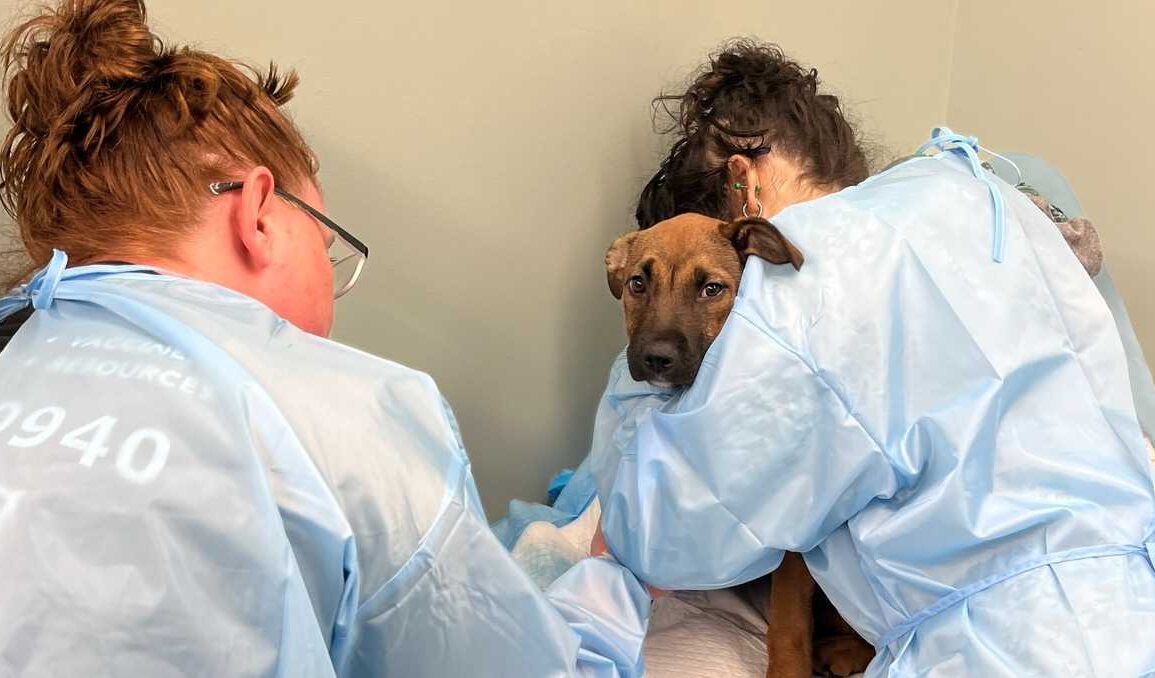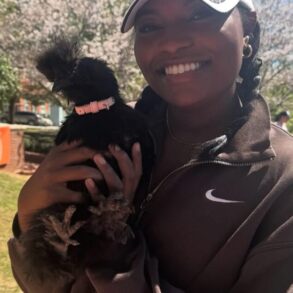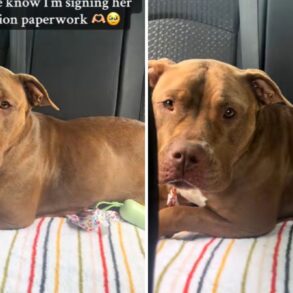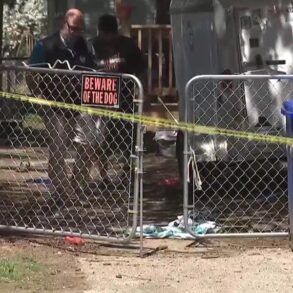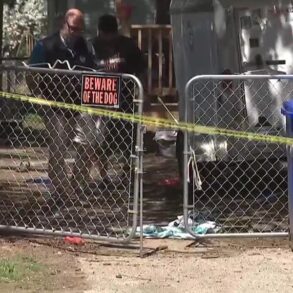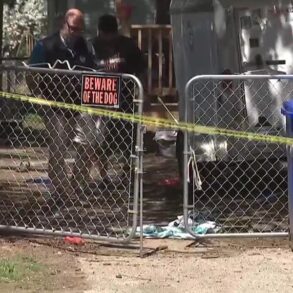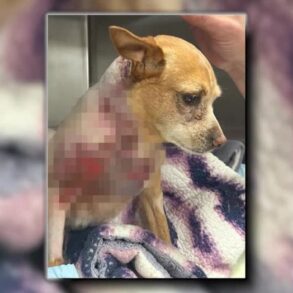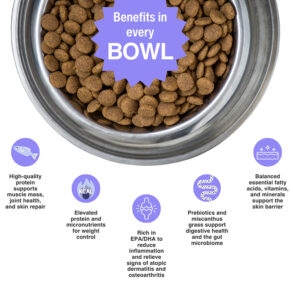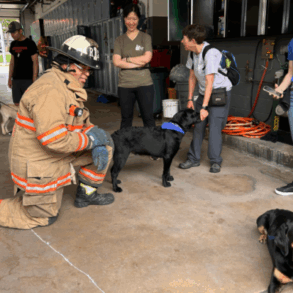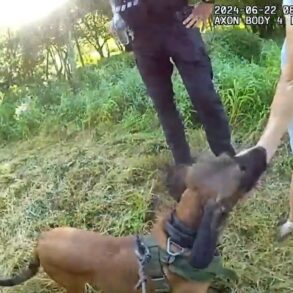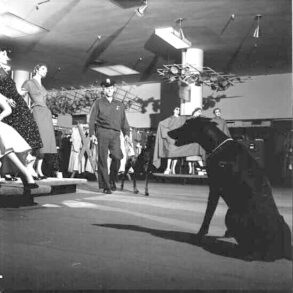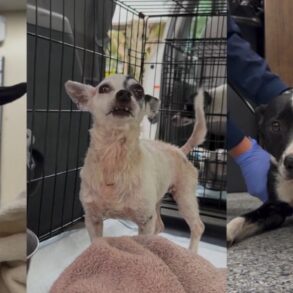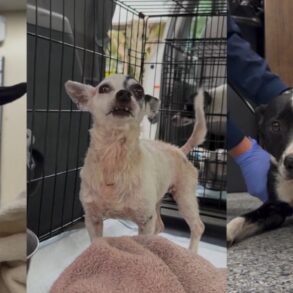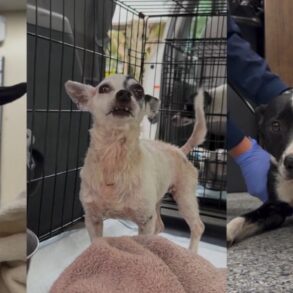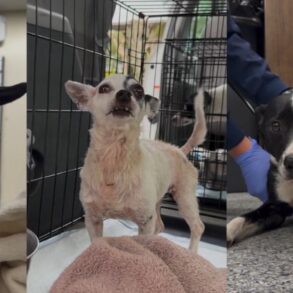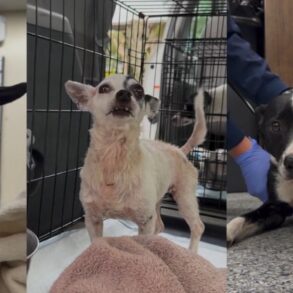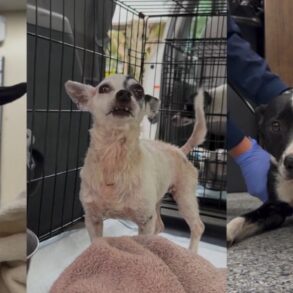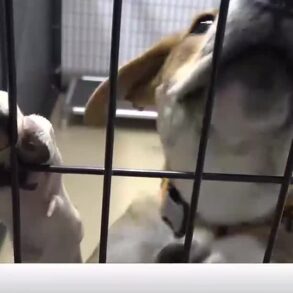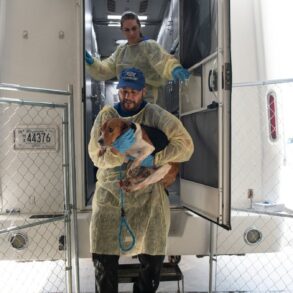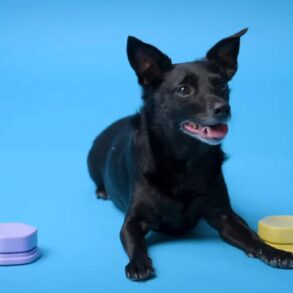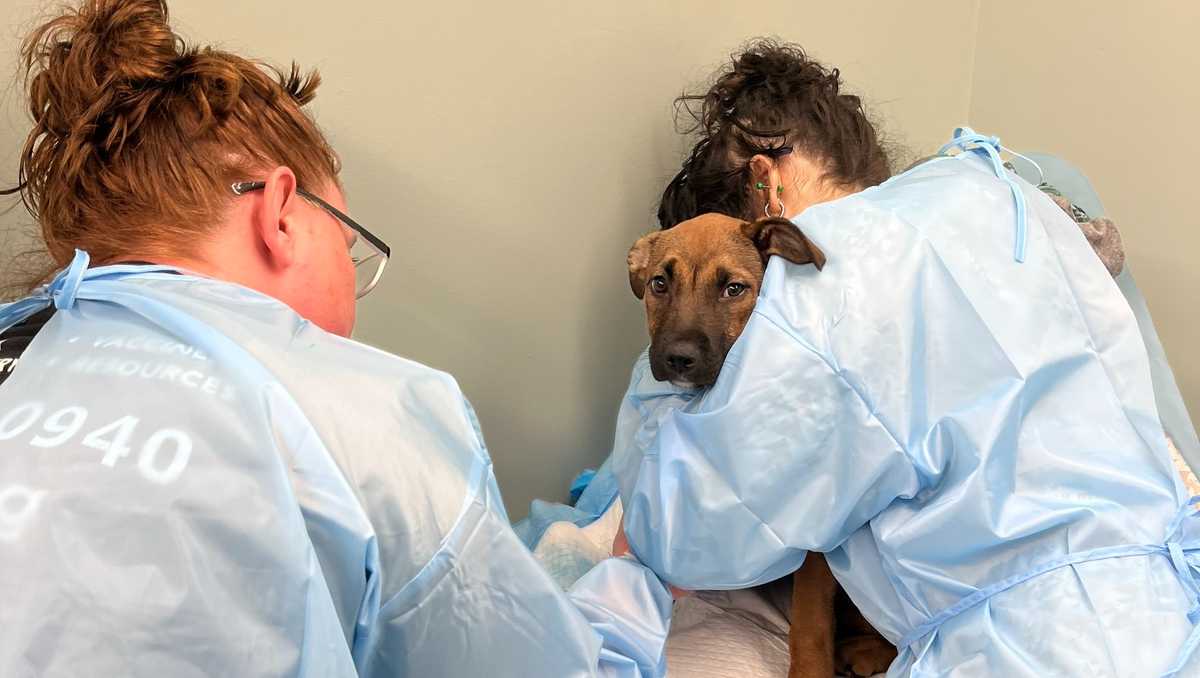
A St. Louis animal shelter is begging Missouri animal rescue organizations to step up after a historic outbreak of deadly parvovirus. That outbreak at the St. Louis County Animal Shelter forced veterinary officials to “humanely euthanize” 19 dogs, and to pause shelter operations indefinitely at the St. Louis County Animal Care and Control Adoption Center. On Sunday, St. Louis County Executive Sam Page provided an update in a news conference along with Dr. Kanika Cunningham, director of the county Department of Public Health. Page said that those 19 dogs had developed symptoms and tested positive for parvo. “With the virus quickly spreading, veterinary staff determined that humane euthanasia was necessary to stem the spread of the virus. That quick action saved the lives of about 200 other dogs,” Page said in Sunday’s news conference. Page went on to say in an animal shelter environment, with animals in close quarters, by the time one case is confirmed, the virus has already made its way to other animals. He called the outbreak “catastrophic,” adding it’s the worst outbreak of parvovirus in the history of St. Louis County. “Time is not your friend during an outbreak, and in this case, we would have had a horrible situation on our hands with dozens and dozens of other animals sick,” he said. Cunningham said the first case of parvo at the shelter was identified on Saturday, April 19. Since then, the shelter has paused intakes, imposed a quarantine on any exposed animals, and set up a temporary holding area in its garage for animals in need. “At the time of our first positive case, we had more than 200 dogs in our care,” Cunningham said. “Our actions were taken to protect the health of the entire population.”In addition, the shelter has established additional deep cleaning protocols to disinfect the environment, and has quarantined the entire shelter, pausing all intake operations except for emergency cases.As of Sunday, only one dog with parvovirus remained at the shelter, and as of Sunday morning, no new cases had been reported.”This is a positive indication that our early proactive steps are making a difference,” Cunningham said. “Our shelter population is currently stable and we remain cautiously optimistic.”The shelter has been able to transfer 32 dogs out of the shelter, to a safer environment, to help prevent further spread of the virus. Officials are asking any remaining area rescues with room to step up and help with placement of some of the 185 remaining dogs at the shelter. “While this has been a difficult time, we remain deeply committed to learning, adapting and growing from this experience,” Cunningham said. The shelter has already started an internal review, and is altering how it handles animals at intake to prevent the spread of illness among the animal population. Page said another thing that would help is attention to vaccinations by the community. “It does exist in the community,” he said. “The problem is, you know, when it enters the shelter, when you have a closely contained shelter and a virus that’s really contagious, it can spread pretty quickly.”According to the American Veterinary Medical Association, canine parvovirus, or parvo, attacks white blood cells in the gastrointestinal tracts of dogs. In puppies, the virus can even attack the heart muscle. Symptoms to watch out for include lethargy (tiredness), loss of appetite, vomiting, severe and often bloody diarrhea, abdominal pain and bloating, and a fever or low body temperature. Parvo is easily spread through direct contact with infected dogs, or with feces from infected dogs or contaminated surfaces. The virus is both heat and cold resistant, and can survive in an environment for long periods. Infected animals need immediate, intense treatment with 24/7 monitoring, and often, hospitalization.Vaccination and other preventative measures, including good hygiene, are key to avoiding infection. A series of parvo vaccinations is suggested for puppies, along with boosters every three years. While no outbreaks have been reported in the Kansas City area, the Pet Resource Center of Kansas City noted a spike in parvo cases last week. “Our urgent care team is seeing multiple positive parvo cases every day that they are open,” the organization said in a post on Facebook. “Many pet owners simply don’t know how dangerous this virus is or that it can be prevented with a simple and inexpensive vaccine.”
A St. Louis animal shelter is begging Missouri animal rescue organizations to step up after a historic outbreak of deadly parvovirus.
That outbreak at the St. Louis County Animal Shelter forced veterinary officials to “humanely euthanize” 19 dogs, and to pause shelter operations indefinitely at the St. Louis County Animal Care and Control Adoption Center.
Advertisement
On Sunday, St. Louis County Executive Sam Page provided an update in a news conference along with Dr. Kanika Cunningham, director of the county Department of Public Health.
This content is imported from Facebook.
You may be able to find the same content in another format, or you may be able to find more information, at their web site.
Page said that those 19 dogs had developed symptoms and tested positive for parvo.
“With the virus quickly spreading, veterinary staff determined that humane euthanasia was necessary to stem the spread of the virus. That quick action saved the lives of about 200 other dogs,” Page said in Sunday’s news conference.
Page went on to say in an animal shelter environment, with animals in close quarters, by the time one case is confirmed, the virus has already made its way to other animals. He called the outbreak “catastrophic,” adding it’s the worst outbreak of parvovirus in the history of St. Louis County.
“Time is not your friend during an outbreak, and in this case, we would have had a horrible situation on our hands with dozens and dozens of other animals sick,” he said.
Cunningham said the first case of parvo at the shelter was identified on Saturday, April 19.
Since then, the shelter has paused intakes, imposed a quarantine on any exposed animals, and set up a temporary holding area in its garage for animals in need.
“At the time of our first positive case, we had more than 200 dogs in our care,” Cunningham said. “Our actions were taken to protect the health of the entire population.”
In addition, the shelter has established additional deep cleaning protocols to disinfect the environment, and has quarantined the entire shelter, pausing all intake operations except for emergency cases.
As of Sunday, only one dog with parvovirus remained at the shelter, and as of Sunday morning, no new cases had been reported.
“This is a positive indication that our early proactive steps are making a difference,” Cunningham said. “Our shelter population is currently stable and we remain cautiously optimistic.”
The shelter has been able to transfer 32 dogs out of the shelter, to a safer environment, to help prevent further spread of the virus. Officials are asking any remaining area rescues with room to step up and help with placement of some of the 185 remaining dogs at the shelter.
“While this has been a difficult time, we remain deeply committed to learning, adapting and growing from this experience,” Cunningham said.
The shelter has already started an internal review, and is altering how it handles animals at intake to prevent the spread of illness among the animal population.
Page said another thing that would help is attention to vaccinations by the community.
“It does exist in the community,” he said. “The problem is, you know, when it enters the shelter, when you have a closely contained shelter and a virus that’s really contagious, it can spread pretty quickly.”
According to the American Veterinary Medical Association, canine parvovirus, or parvo, attacks white blood cells in the gastrointestinal tracts of dogs. In puppies, the virus can even attack the heart muscle.
Symptoms to watch out for include lethargy (tiredness), loss of appetite, vomiting, severe and often bloody diarrhea, abdominal pain and bloating, and a fever or low body temperature.
Parvo is easily spread through direct contact with infected dogs, or with feces from infected dogs or contaminated surfaces. The virus is both heat and cold resistant, and can survive in an environment for long periods.
Infected animals need immediate, intense treatment with 24/7 monitoring, and often, hospitalization.
Vaccination and other preventative measures, including good hygiene, are key to avoiding infection.
A series of parvo vaccinations is suggested for puppies, along with boosters every three years.
While no outbreaks have been reported in the Kansas City area, the Pet Resource Center of Kansas City noted a spike in parvo cases last week.
This content is imported from Facebook.
You may be able to find the same content in another format, or you may be able to find more information, at their web site.
“Our urgent care team is seeing multiple positive parvo cases every day that they are open,” the organization said in a post on Facebook. “Many pet owners simply don’t know how dangerous this virus is or that it can be prevented with a simple and inexpensive vaccine.”
This post was originally published on this site be sure to check out more of their content.


